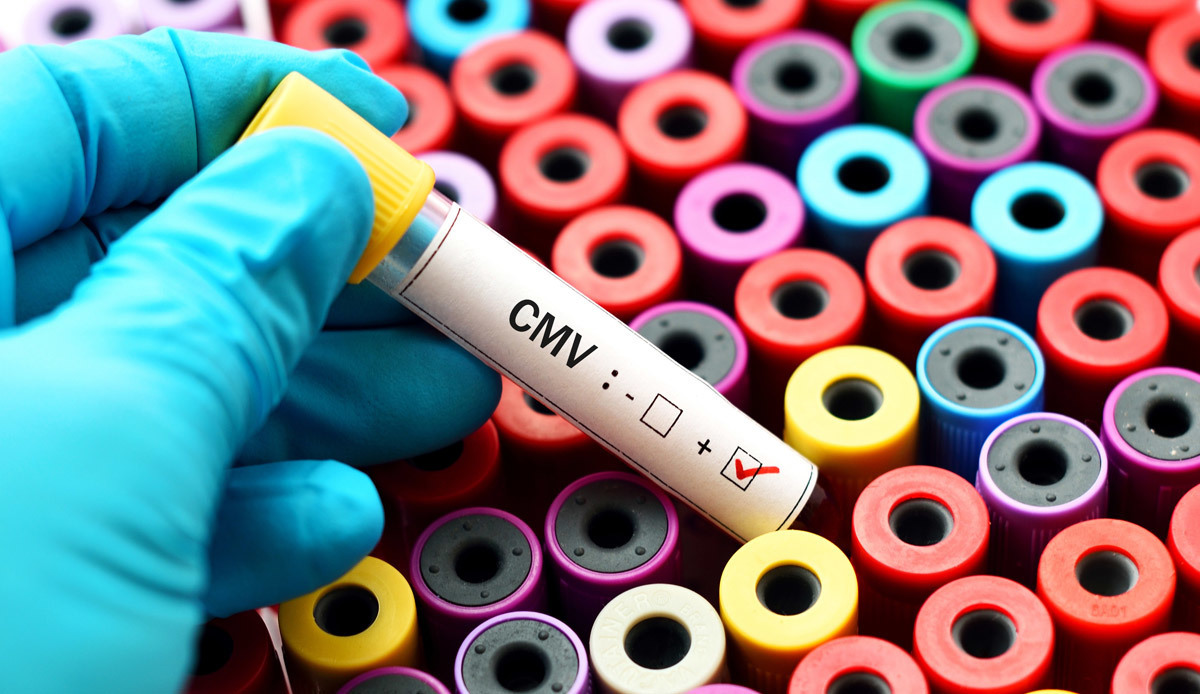Cytomegalovirus, commonly known as CMV, is a virus that most American adults have been exposed to and have developed immunity to. CMV is a member of the herpes virus family which includes cold sores, chicken pox and infectious mononucleosis (mono). In healthy adults and children, CMV can cause mild cold or flu-like symptoms that may last 1-2 weeks. However, if a woman who has never had CMV becomes exposed during pregancy, there is a small risk the child may develop neurologic abnormalities.
How is CMV spread?
CMV is spread from person-to-person by exposure to saliva, urine, semen, blood and other body fluids. CMV is not associated with food, water or animals. Most individuals are infected in childhood and daycare centers are one of the more common exposure settings. Prevention consists primarily of avoiding exposure to infected body fluids and practicing good personal hygiene. There is no vaccine for CMV.
What happens to the virus after infection?
When a person is exposed to CMV, the body develops antibodies to fight the CMV infection. The virus is never completely eliminated from the body but remains dormant inside certain cells for the lifetime of the individual. Although this person will test positive for CMV antibodies, he or she is healthy, has no evidence of disease and will not ordinarily transmit the virus to another person. However, if there is a suppression of the immune system, the virus may reactivate, shed viral particles and cause disease.
Who is at risk of contracting a CMV infection?
Nearly all adults will be exposed to CMV in their lifetime. In the USA, it is estimated that 50-85% of adults will test positive for prior infection by 40 years of age. In developing countries, it is almost 100%.
What are the complications of a CMV infection?
In healthy adults and children, symptoms from CMV infection are usually mild and fully resolve in a couple of weeks. However, organ transplant recipients and people with AIDS who have compromised immune systems, may develop serious illness such as pneumonia. Pregnant women who are infected for the first time during pregnancy usually recover completely with few or no symptoms. Most babies will not be harmed by the virus, but a small percentage may develop neurological abnormalities. Congenital CMV infection is a leading cause of hearing loss.
How are donors screened for risk of CMV transmission?
At Seattle Sperm Bank, CMV Total Antibody testing is performed on all donors prior to qualification and at approximate 90-day intervals thereafter. Negative results are consistent with no previous infection. If the Total Antibody test is positive, additional testing for CMV IgG Antibody and CMV IgM Antibody is performed to determine if the result represents a recent or old infection. A positive CMV IgM result is consistent with a current or recent CMV infection. A positive CMV IgG result in combination with a negative CMV IgM result indicates historic exposure to the CMV virus. These latter results are consistent with a normal immune response.
Which donors are excluded from donating?
If CMV testing indicates the donor has a current infection (positive CMV IgM), the donor is not eligible to participate in the program at that time. If, through periodic testing, it is determined that a donor has become infected, he will likewise be deferred and any retained vials since his last negative result will be discarded. If CMV testing indicates the donor only has an old infection (positive CMV IgG but negative CMV IgM), he will be accepted into the program and his donor profile will indicate CMV positive.
How reliable are the CMV antibody tests?
No laboratory test is 100% accurate. It has been estimated that 5-20% of people who test negative for CMV antibody will test as ‘false-negative’ because the antibody level is too low to detect. Because all vials remain in quarantine for at least 6 months, and the donor is tested multiple times prior to release of those vials, we are able to track any change in CMV test results that may occur.
What should I do if I am CMV negative?
Based on published literature, the risk of exposure from a donor who tests positive for CMV IgG antibodies but has had no current or recent infection is very low. It is believed that the risk is further reduced through semen processing methods that remove white blood cells and seminal fluid. However, if you are CMV negative – meaning you have never been exposed to CMV – we suggest you consult your physician prior to selecting a donor. Alternatively, you may want to restrict your selction to CMV negative donors.
*For more information visit the Center for Disease Control at: What is Cytomegalovirus.
**Also, be sure to speak with your physician with any specific questions.


